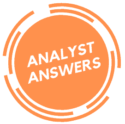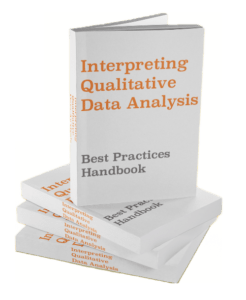Every profession needs some form of evaluation. Academics use written tests, athletes use speed and agility exercises, and businesspeople use a combination of key performance indicators, such as conversion rates and sales. The same assessment applies to organizations as a whole. For example, universities use drop-out rates, teams play in tournaments, and companies set financial objectives.
In other words, everybody needs to evaluate performance. Assessment measures are a way for people and organizations to do so — to deliver a measurement tool and evaluate its output. But what do they really look like in practice? This article defines assessment measures and provides several examples to help you understand them.
Assessment Measures Definition
In short, assessment measures are formal, consistent, and dynamic measuring tools used to assess the ability of individuals and organizations to reach their goals. They’re formal because they require a degree of scientific rigor to control for unwanted variables. They’re consistent because they need to be compared across test subjects and over time. They’re dynamic because they involve more than one variable to promote a wholistic view of performance, rather than one KPI.
It’s important to note that assessment measures do not measure the test subject’s actual performance in the field. Instead, they measure the skills deemed necessary for him or her to perform in the field. For this reason, many people critique assessment measures as being imprecise.
The most common example of assessment measures occurs in academic settings. Standardized tests for students provide formal, consistent, and dynamic assessments of students’ abilities to solve problems and arrive at conclusions quickly. However, these tests often fail to show how well students will perform in the field.
Examples of Assessment Measures in Business
In academics, especially in the United States, standardized tests such as the SAT, ACT, LSAT, and GRE are the most common assessment measures. However, almost every technical profession has a specific test, and data, finance, and business analysis are no exceptions. AnalystAnswers.com is all about data, finance, and business analysis, so we’ll focus on those here.
- Data analysis
- CAP. The Certified Analytics Professional (not to be confused with the Certified Administrative Professional) certification is a widely-recognized and premier analytics exam administered by INFORMS that focuses on the hard and soft skills needed to succeed in an analytic role, including
- Business Problem (Question) Framing
- Analytics Problem Framing
- Data
- Methodology (Approach) Selection
- Model Building
- Deployment
- Model Life Cycle Management
- The ability to communicate with a client/employer regarding the framing of an analytics problem
- Understanding the client’s/employer’s organizational identity and industry focus
- The ability to convey a clear understanding of the findings of the analytics process to the client/employer
- Certification of Professional Achievement in Data Science. This is Columbia University’s certification, and it’s one of the most theoretical on the list. With courses such as Calculus and Linear Algebra as prerequisites and very little emphasis on practical application, many find this certificate more of a mental exercise. Nevertheless, it is very well respected. Many employees consider graduates of this program to have a good theoretical understanding of data analytics.
- IBM Data Science Professional Certificate. This is a basic introductory course, and you don’t need any skills to take it. However, at 10 months, it is quite lengthly. Employers generally see this as a solid foundational course.
- CAP. The Certified Analytics Professional (not to be confused with the Certified Administrative Professional) certification is a widely-recognized and premier analytics exam administered by INFORMS that focuses on the hard and soft skills needed to succeed in an analytic role, including
- Financial analysis
- CFA. The Chartered Financial Analyst certificate is the most theoretical and market-based certification on the list. It probably carries the best reputation and promotes the highest salary increases because of how thorough and selective it is. However, it is very lengthly and theoretical. Employees see this as a sign of intelligence and knowledge, but not necessarily a sign of skills.
- CPA. The Certified Public Accountant license is more than a certificate. You actually need it to provide accounting services to the public as an independent provider. For those who want to move up the ranks in big private companies, a CPA distinction may be the best way to do so. Employers generally see the CPA license as a highly-applicable certification.
- CMA. The Certified Management Accountant certification is most applicable for those who want to specialize in corporate finance. While the test is theoretical in nature, it’s questions are designed around real-world corporate finance challenges. Employers usually see the CMA certificate as a guarantee of theoretical knowledge and practical skill.
- Business analysis
- ECBA. Unlike data and financial analysis, business analysis is managed by one core institution — the International Institute of Business Analysis (IIBA). The IIBA has three levels of BA distinction: the Entry Certificate in Business Analysis (ECBA), the Certification of Capability in Business Analysis (CCBA), and the Certified Business Analysis Professional (CBAP). The ECBA is a great starter certificate for business analysts that employers generally see as proof of seriousness about the profession.
- CCBA. The CCBA recognizes advanced BA professionals with 2 to 3 years of practical working experience. Employers value this certification because it shows understanding of BA principles and how to apply them.
- CBAP. The CBAP recognizes seasoned BA professionals who have over 5 years experience. This certificate puts BAs in the upper echelon of the field and shows what they’re capable of achieving.
All of these certifications are examples of assessment measures. They’re formal, consistent, and dynamic tests that don’t actually show performance in the field, but the knowledge and skills needed to perform. Employers, thus, rely heavily on assessment measures such as these tests.
Aptitude Tests as Assessment Measures
Aptitude tests are a general form of assessment measures. They test general intelligence skills such as numerical reasoning, verbal reasoning, and diagrammatic reasoning through a series of multiple choice and short response questions. Common examples include Career Hunter, The MAPP Career Assessment, and CliftonStrengths.
While they are less informative about the specific skills needed on the job, aptitude tests can tell employers a lot more about an employee’s ability to adapt, to think quickly, and to find solutions in unfamiliar situations. These are all critical to the modern working world, but it’s hard to measure and assess them with profession-specific assessment measures.
Personality Tests as Assessment Measures
In the same generalist field as aptitude tests are personality tests. Personality tests gauge employees’ ability to work under pressure, without pressure, and alongside others. These tests tell employers what working styles are most comfortable for employees.
While personality tests help us decide how to best place ourselves, they cannot usually be used as a hiring criteria. The reason is that an employment decision based on factors other than professional and technical skill could be considered biased or prejudiced.
Assessment Measures for Businesses as a Whole
We’ve given many examples of assessment measures for individuals, but what about for businesses as a whole? In most cases, company’s can’t take a “test” or get a certification. However, departments and teams can do exercises to see how well they work together.
Team building exercises don’t have to be directly related to everyday work. They can be fun events such as obstacle courses or escape games, or even just playing sports together. It’s all about how well teams organize themselves to succeed — whatever the task.
Conclusion
Assessment measures are common to almost every walk of life. They’re formal, consistent, and dynamic measuring tools used to assess the ability of individuals and organizations to reach their goals and perform in the field.
Whether you’re in academics, athletics, or business, assessment measures will help you both evaluate yourself, your peers, and your organization to ensure collective success.


